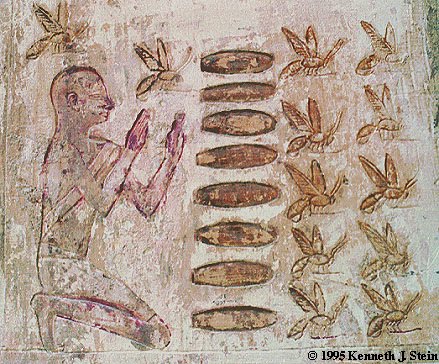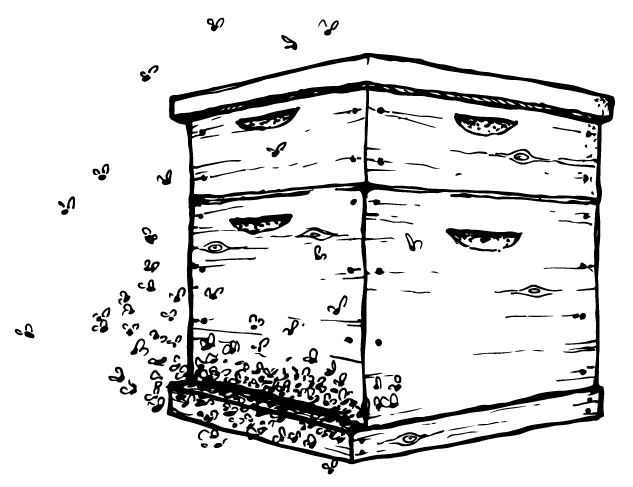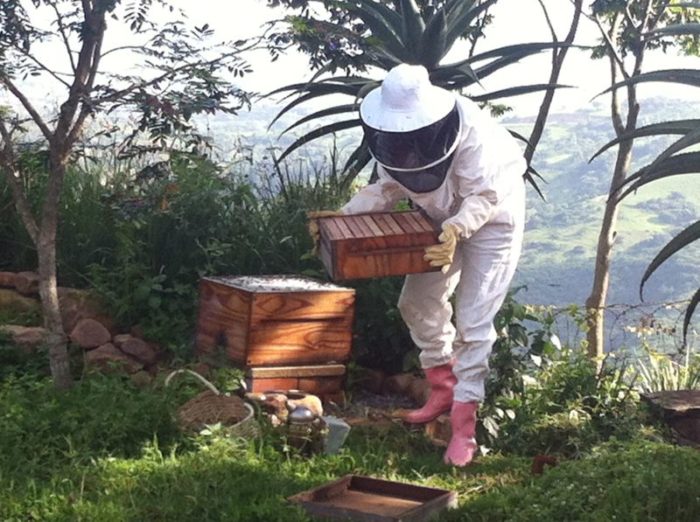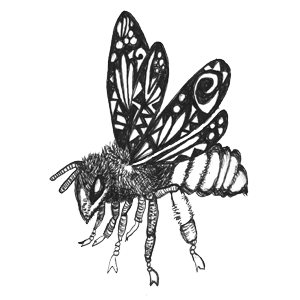~FREE SHIPPING on orders over R600~
~FREE SHIPPING on orders over R600~
Mindful bee-keeping practices.. here’s a subject you may not be familiar with. Let me delve into some respectful practices associated with this form of bee-keeping.
History reveals that beekeeping was an art form practiced by skilled
craftsman from various cultures and backgrounds. Throughout the ancient world it was a practice bestowed upon artisans, Buddhist monks and early prehistoric farmers.

Ancient Egyptians held the honey bee in high almost spiritual regard.During these times bees were kept in or near temples and tended to by temple beekeepers. The honey bee was sacred to their existence as they provided valued resources of wax and honey for practical and medicinal purposes.
Beginning with a simple truth that honey bees are never owned by humans. Forever, wild flying insects which can be homed in a man-made hive owned by a beekeeper, but the bees themselves are never owned. Accepting the notion that bees have “free will” and are able to leave the hive at any time. This philosophy reiterates that we are merely custodians of these magical flying insects. Mindful bee-keeping practices accommodates an awareness of bees, placing the needs of the bees first.

Seasons and weather play an integral part in our approach to mindful bee-keeping. Syncing beekeeping seasonal activities with the lunar cycle and weather patterns can help support a bee colony in their production and minimise the stress factors within the hive. The Moon has an effect on the Earth, its gravitational pull causes tides and influences behaviour in humans, plants, animals and insects.
As the waxing moon grows, bees can be found foraging in the evenings, due to the increased light intensity. This phase is considered the spring-summer season of the Moon, a time of vitality with noticeably more productivity in the hive. Pay attention to maintenance during the waxing moon, it provides an opportunity to service frames, seal the outside of the wooden hive and plant nectar and pollen rich plants for bees. Consideration is taken during productive time, disturbance within the brood box should be kept to a minimum.
Energy and moisture levels fall during waning to last quarter of the moon. This is a good time to harvest honey, if there is any to harvest. Activities such as clearing overgrowth, mowing lawn around the hive are done. I use this phase to also check on the general health of the bees.
Weather conditions influence bees, they maintain 32-36 degree temperature within the hive to ensure brood (baby bees) develop normally. Working with bees on still sunny days optimises this. Extreme weather like cold, hot or windy days are not the best conditions to check up on bees. Windy days are particularly challenging for them as the wind makes it difficult for them to fly.
Honey bees have an acute sense of smell. Wearing synthetic scent i.e perfumes, aftershave and cologne irritates them and can cause a defensive reaction when you work with them. Before any bee-keeping activities, I take a shower to reduce the risk of getting stung, as bees find body odour offensive.
There is no need to rush through bee-keeping. Bees do not take kindly to quick sudden movements. Take your time, move in a calm gentle manner. The less you bash about, the less agitated they tend to be. If you are having an off day, as we all do, perhaps best to steer clear of bee-keeping work on these days. Bees pick up on the subtle signals we give off.

Always have your bee-keepers smoker on hand to smoke the bees just enough to relax them. The use of the smoke makes them think there is a wildfire nearby, gorging themselves on honey making them calmer to work with. Remember less is more too much smoke can make them feel nauseous and taint the taste of honey.
I had an abscess on my left leg, a few years ago which I kept covered whilst it healed. I decided it would be a good idea to check the health of our hives. Unfortunately I forgot the most important principle, never to work with bees when cut, bleeding or injured. I received stings all around the abscess area. To this day I believe they were supplying me with “bee love” extremely painful love, might I add. As a female bee-keeper I take into consideration my monthly menstruation, as as a safeguard I refrain from bee-keeping during this time.
Nurturing and working in harmony with bees bring about balance and a respect that nature is our equal. In honour of the sacred act of mindful bee-keeping practices I have developed the Botanique Massage Bar which embodies these principles and my fascinations and reverence for bees.

Receive product information, exclusive offers, creative tips, newsletters and more